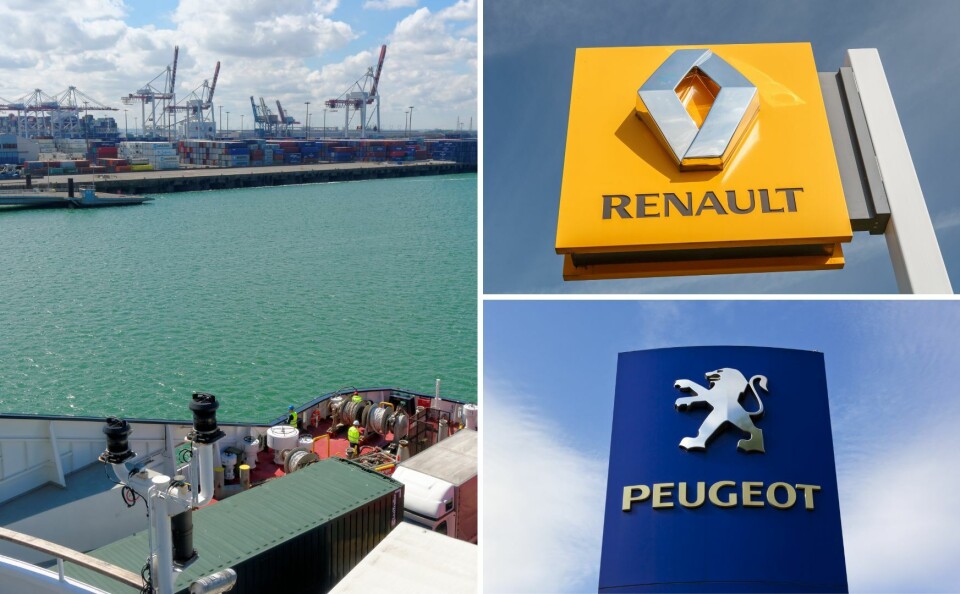-
More communes in France distribute Asian hornet traps
Residents are increasingly receiving help, with now the best time to capture the queens
-
Drinking tap water restricted for children in south-west France communes
Haute Garonne prefecture says the measure is precautionary and due to high chlorate levels
-
France targets imports from South America over banned chemical concerns
Avocados, mangoes, and cherries among food items set to be tested before entry
Electric cars: northern France to become battery-making corridor
Five huge factories are being built or planned. One manufacturer with Renault deal was only founded in the 2020 lockdown

Work on a huge factory to make electric vehicle batteries on a 150-acre site at Dunkirk’s port is to start early next year.
The decision confirms that northern France will become a ‘battery corridor’, with no fewer than five large factories either being built or in advanced planning stages.
Read more: Foreign firms pledge to invest record €6.7bn in France this year
New factory to use low-carbon method
The Dunkirk site is owned by a company called Verkor, which was founded during lockdown in 2020.
It has a deal with Renault to ensure a sales outlet for at least 70% of its batteries, which will be made using a patented low-carbon method.
1,200 jobs created
The company has another two factories in the pipeline.
One, at Bourbourg in Nord department, is in the process of getting planning permission in the expectation work will start as soon as the Dunkirk site has progressed.
Up to 1,200 jobs will be created at the Dunkirk factory, as well as an estimated 3,000 indirect jobs, especially in the building phase.
Production is due to start in 2025.
France gets ahead of EU ban
The idea is for France to be able to provide most of the batteries that will be needed when an EU-wide ban on petrol and diesel engine cars comes into force in 2035.
Read more: EU votes to ban new petrol and diesel cars in Europe from 2035
Verkor is the brainchild of a former Airbus engineer, Benoît Lemaignan, who founded it with five other engineers while working from home in Grenoble.
Renault, the investment fund EQT, and the very rich Swedish Wallenberg family have all put money into it, with Renault taking a 20% stake.
It wants Verkor batteries to be used for the all-electric Alpine models it is planning.
Some €1.5billion must be raised to build the first three factories.
Verkor is also building a research and development centre in Grenoble in a factory dating from 1920, formerly owned by Schneider Electric.
North to become battery making ‘corridor’
Mr Lemaignan said he is sure France has all the talents necessary to produce electric vehicle batteries.
Most manufacturing efforts will be concentrated on the so-called ‘battery corridor’ in the far north of France.
As well as Verkor, the Chinese/Japanese company Envision is building a battery factory at Douai, also in Nord, on one of Renault’s historic factories.
The batteries will be used in the all-electric Renault 5 model, due to hit showrooms in 2024, and the new Renault 4, also all-electric, due in 2025.
A third company, ACC, is a joint venture between French giants Total and Saft.
It is building a factory at Douvrin in Pas-de-Calais and has signed an agreement with Stellantis, the new name for PSA Peugeot Citroën, for the batteries to be used in its vehicles.
Renault has also signed with ACC for when the battery-maker develops the new, quicker-charging ones it is working on at a Saft research factory near Angoulême in Charente.
In each case, the battery company will make individual cells, similar to torch batteries, which carmakers will then pack into cases and frames designed for individual vehicle models.
Batteries last longer than expected
Electric vehicle battery life has been much higher than many experts predicted, with most Renault Zoes still using their original batteries nearly 10 years after they were sold.
“Hardly any have had to be changed, and those that have were because of accidents or overheating incidents,” a Renault spokesman told The Connexion.
“Of the 490,000 Renault electric vehicles of all sorts on the roads, less than 1% have ever had to have their batteries replaced.
“Modelling shows they should be good for at least 15 years, after which they might fall below 75% efficiency, the point at which they should be changed.”
Battery packs taken from Renault vehicles are converted into storage units suitable for factories and homes.
Related articles
€6,000 grant to help buy an electric car in France extended all year
Electric cars, hybrids, public chargers - views of EV owners in France
Why drivers risk a fine in our French city if they leave engine idling
























